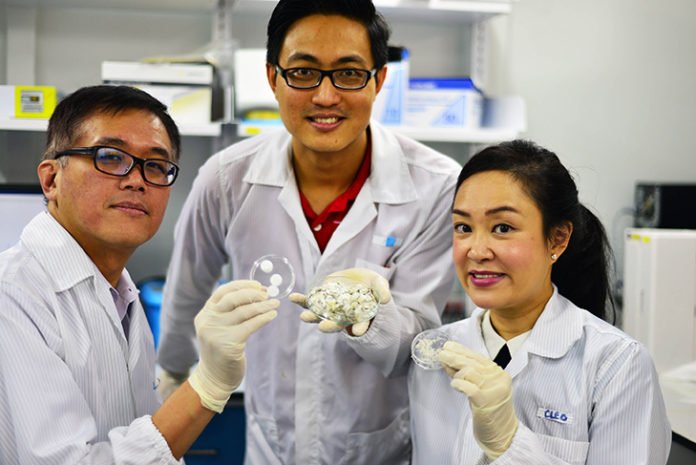According to Nanyang Technological University, Singapore (NTU Singapore), collagen got from fish scales could be viable for different biomedical applications, for example, wound recuperating. Not only for wound healing, it also offers promise as a carrier of drugs that can enhance wound healing, such as growth factors.
Fish scale usually contains collagen that, when additionally changed and connected to mice, advanced blood and lymphatic vessel arrangement, in this way enhancing the potential for tissue repair and recovery.
During experiments, scientists used chemical modification to make water-solvent collagen from the fish scales, opening up the likelihood that this collagen could join sedates and be effectively used to create twisted dressings with prevalent recuperating potential.
Assistant Professor Cleo Choong from the NTU School of Materials Science and Engineering said, “Currently, collagen is widely used for various biomedical applications. However, most of the commercially available collagen-based products are from mammalian animal sources such as pigs, cows, and sheep.
“Consequently, clinical application of these materials has been limited due to cultural and religious restrictions associated with these mammalian tissue-derived materials. In addition, more checks and processing have to be in place due to the risk of diseases that can be transmitted from mammals to humans.”
Associate Professor Andrew Tan from the NTU School of Biological Sciences said, “Collagen is commonly used for wound dressing material due to its favorable biological properties. Applying collagen dressings to a wound to stimulate tissue growth can provide relief for a wide variety of injuries. Collagen dressings come in all shapes and sizes – gels, pastes, powders, and pads. It can potentially treat wounds of all dimensions.”
About 200 milligrams (mg) of collagen can be gotten from 10 grams of fish scales- the sum that can be acquired from maybe one or two fish. There is little cost in getting the fish scales since they are normally disposed of, when contrasted with sources, for example, cowhide which have an extensive variety of different employments. Barring work costs, the materials used to separate 100 mg of collagen from fish scales in the lab is simply finished S$4.
Mr. Teo Khai Seng, owner of Singapore’s KhaiSeng Trading & Fish Farm Pte Ltd said, “We descale and sell over 200 fish a day to wholesalers, restaurants and walk-in customers. If these discarded fish scales can lead to successful biomedical applications in future, it would be a good use of these waste materials.”
The paper is published in the journal Acta Biomaterialia.
